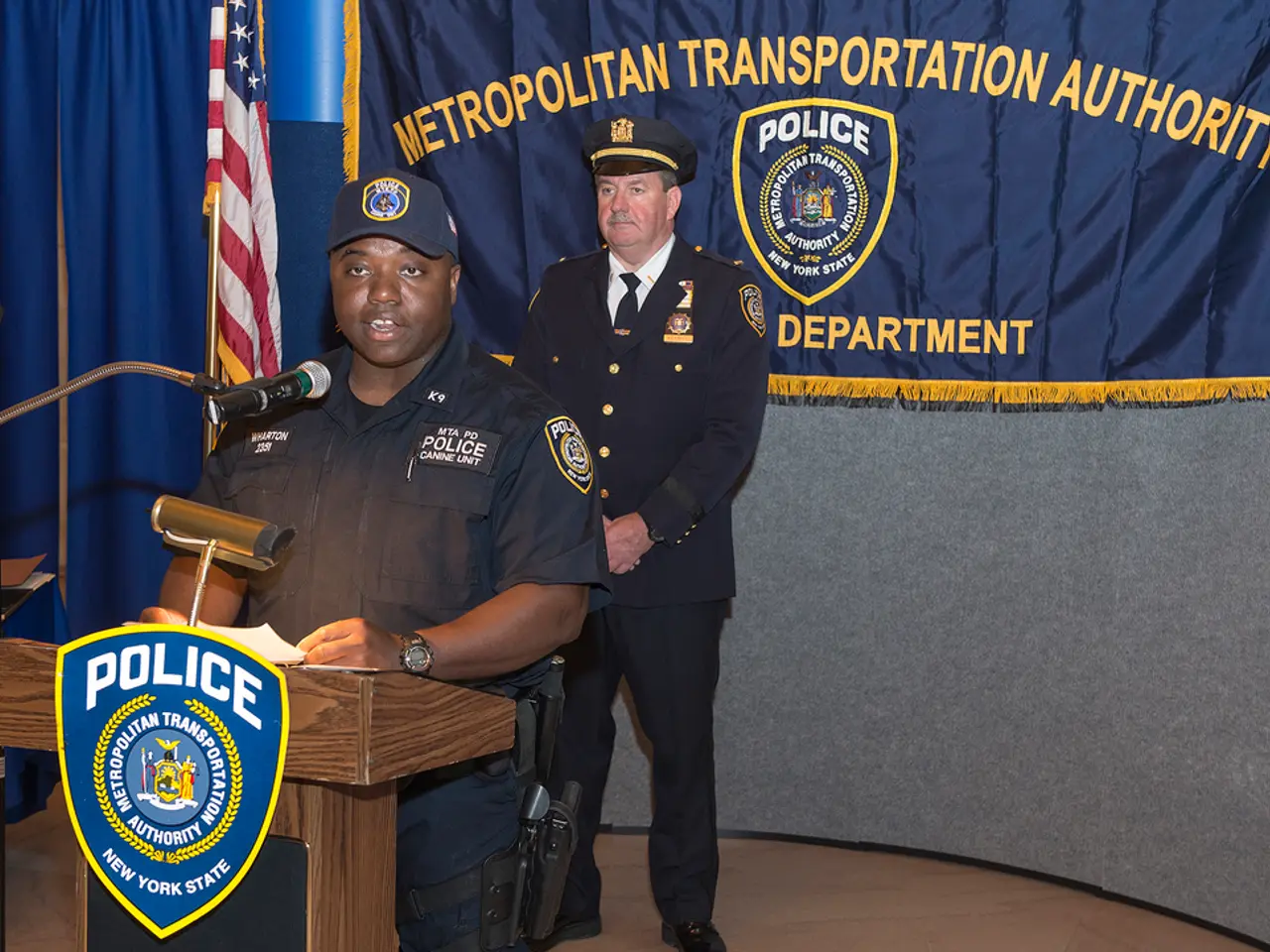Federal authorities in Washington D.C. to collaborate with immigration agencies, exchanging crucial data
DC Police Allow Limited Cooperation with Federal Immigration Agencies
In a significant policy shift, Washington, DC Police Chief Pamela Smith has signed an executive order allowing DC police officers to share information with federal immigration enforcement agencies such as ICE. The order, announced on Thursday, marks a departure from previous DC restrictions on police cooperation with ICE.
The executive order authorizes limited cooperation between DC police officers and federal immigration agencies. Officers are allowed to share information about individuals not in police custody—such as those encountered during traffic stops—with ICE, including details like immigration status, home address, and place of work. They may also provide transportation for federal immigration agents and detained subjects.
However, the order comes with restrictions. DC police are not allowed to use police databases solely to check immigration status or enforce civil immigration laws. Officers are also prohibited from arresting individuals based solely on ICE warrants or detainers without an accompanying criminal offense. Additionally, police will not share case information or hold individuals past release for immigration purposes if they are already in police custody.
This policy overrides any conflicting department policies and represents a shift from previous DC restrictions on police cooperation with ICE. The change occurs amid President Trump’s invocation of Section 740 of the Home Rule Act, temporarily placing the MPD under federal control. This move reflects heightened federal priorities to enforce immigration laws within the district.
The DC police spokesperson stated that the order was meant to clarify but does not change existing MPD policy and District law. Despite this, the order could potentially increase ICE’s ability to identify and detain undocumented immigrants encountered during routine police activity outside of custody.
The order could also affect trust between immigrant communities and local police, as officers can now share some personal details with immigration authorities, even if individuals are not arrested on that basis. This increased cooperation could have implications for illegal immigration enforcement, as enhanced collaboration allows federal immigration enforcement greater access to information and logistic support from DC police.
However, the order maintains some protections for immigrants from being used as a basis for detention without other criminal grounds. By prohibiting arrests solely on immigration warrants and restricting information sharing about people in custody, the order limits police discretion in immigration-related matters.
President Trump has expressed support for the DC Police Chief's executive order, calling it "a great step." DHS Secretary Kristi Noem has called the DC executive order a "game changer" and urged other cities to follow suit. Contrary to Trump's claims, city statistics show that violent crime in DC has dropped over the past two years after peaking in 2023.
On Wednesday night, 29 undocumented migrants were reportedly removed from DC by federal authorities. The president suggested that other cities may follow DC’s example to avoid a federal takeover. However, DC Mayor Muriel Bowser's office declined to comment on the police chief's executive order.
CNN has reached out to ICE for comment on the executive order. The executive order allows DC police to assist federal law enforcement agencies with transporting personnel and detainees, but it does not allow officers to make inquiries about a person's immigration status for the purpose of determining whether they have violated civil immigration laws or for enforcing civil immigration laws. The order also prohibits officers from looking through police databases solely for a person's immigration status.
Despite Bowser once touting the nation's capital as a sanctuary city, she has since been careful in describing the city as such amid a second Trump presidency. The president has escalated his efforts by declaring a crime emergency and federalizing DC's police force, along with deploying the DC National Guard. The impact and implications of this policy shift on illegal immigration enforcement, community relations, and trust between immigrant communities and local police remain to be seen.
- The DC Police Executive Order, a move supported by President Trump, permits DC police officers to help federal law enforcement agencies with transportation, but it does not authorize them to inquire about a person's immigration status for the purpose of enforcing civil immigration laws.
- The DC Police Executive Order, while potentially increasing ICE's ability to identify undocumented immigrants during routine police activity outside of custody, limits police discretion in immigration-related matters by prohibiting arrests solely on immigration warrants and restricting information sharing about people in custody.






